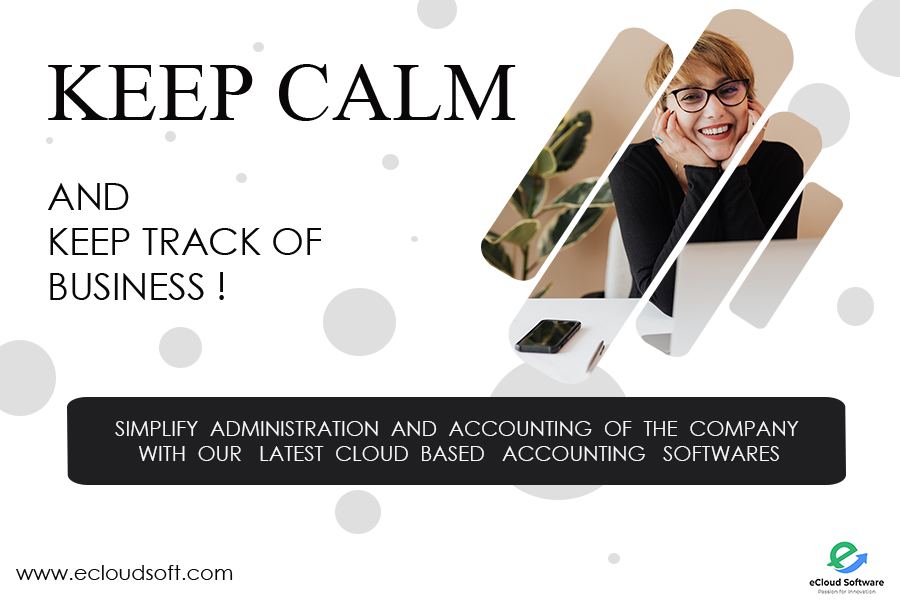If your company still uses desktop software or spreadsheets for accounting, it may be time to consider upgrading to a cloud-based accounting system. Cloud-based software offers many benefits over on-premises solutions, including allowing users to work from anywhere, at any time, automation of time-consuming manual processes, improves accuracy and compliance and the ability to accelerate financial close processes with less effort.
Depending on the software, companies can gain additional benefits, such as more predictable software costs, less spending on hardware, lower IT overhead, better disaster recovery, sophisticated threat and security monitoring, higher levels of availability, greater performance and scalability.
1.Less administration: With cloud accounting software, business owners remove the need to contend with time-consuming software installation, backups and other administrative tasks, because you’re accessing the software over the internet. You don’t need to buy or manage servers or other IT infrastructure to run your accounting software.
2.Software is always up-to-date: Because the software is in the cloud, you always have the most up-to-date version. The cloud provider automatically updates the accounting software to include changes to tax rates and accounting rules and adds new features. You don’t have to worry about upgrading your software to stay up-to-date; whenever you log in, you’ll immediately get access to the latest version
3.Automation: Cloud-based accounting platforms automate many accounting tasks, reducing manual work. For example, the software can automatically import bank and credit card transactions, produce recurring invoices, schedule reports, pay subscriptions and post transactions to the correct ledger. It may automatically calculate discounts and taxes and flag exceptions where invoices don’t match purchase orders.
4.Paper-free/eco-friendly: Traditional accounting often entails paperwork — lots of it. In today’s digitized world, it’s both inefficient and unnecessary to physically store archived paper records or manually distribute paper reports to investors, lenders and other parties. Ask vendors to send invoices electronically so they can be imported directly into the cloud accounting system. You can declutter the office by scanning paper bills and receipts for processing
5.Data security: You may have concerns about storing sensitive information in the cloud. But cloud accounting services actually enhance security for most businesses in several ways. First, cloud providers apply multiple levels of security, including advanced encryption and access control, to ensure that only authorized users can access your data. They also automatically back up your data so you don’t run the risk of losing vital financial records.
6.Accuracy: Cloud-based accounting software improves accuracy by eliminating many of the error-prone manual steps that are required when using spreadsheets. In addition to automatically categorizing transactions and calculating taxes, cloud software can match received invoices to payments and shipments and even automate reconciliation processes, matching internal transactions to bank records and flagging errors.
7.Customization: Every business is different, which is why it makes sense to choose cloud accounting software that can be customized to your organization’s individual needs. Some cloud accounting solutions allow you to tailor processes and workflows to better match the way your company operates. You can build personalized dashboards that provide each user with an at-a-glance view of their most important metrics and other information.
8.Real-time reporting and data visualization: When the business manages accounting using spreadsheets or paper-based processes, it’s difficult to get a quick, accurate, up-to-date of view of business performance. As a result, leaders may not spot issues early enough to prevent them from developing into bigger problems. Cloud accounting systems can solve this problem by providing real-time access to centralized data. Instead of waiting for historical reports that are weeks or months out of date, users always have an up-to-date view of the company’s current financial position.
9.Accessibility/availability: Unlike old-school desktop accounting software, cloud-based systems free you from the confines of your office. With online accounting software, authorized users can log in from any location, 24/7, through a web browser or mobile app. They can approve payments or send invoices without having to wait until they’re back in the office. Accounting team members are always plugged in to the most current financial information and real-time analytics.
10.Efficiency: Automated accounting processes, real-time access to accurate information and reduced administration contribute to a more efficient accounting function overall, which helps boost the efficiency of the entire business. Your staff will waste much less time manually entering and checking data, and increased accuracy and built-in controls mean they expend less effort tracking down issues, such as mismatched invoices. More accurate data and automation mean staff members don’t have to scramble to consolidate data from disparate systems to meet deadlines. And because accurate, up-to-date financial data is available throughout the organization, everyone across the company can use it to make decisions that improve business performance.
